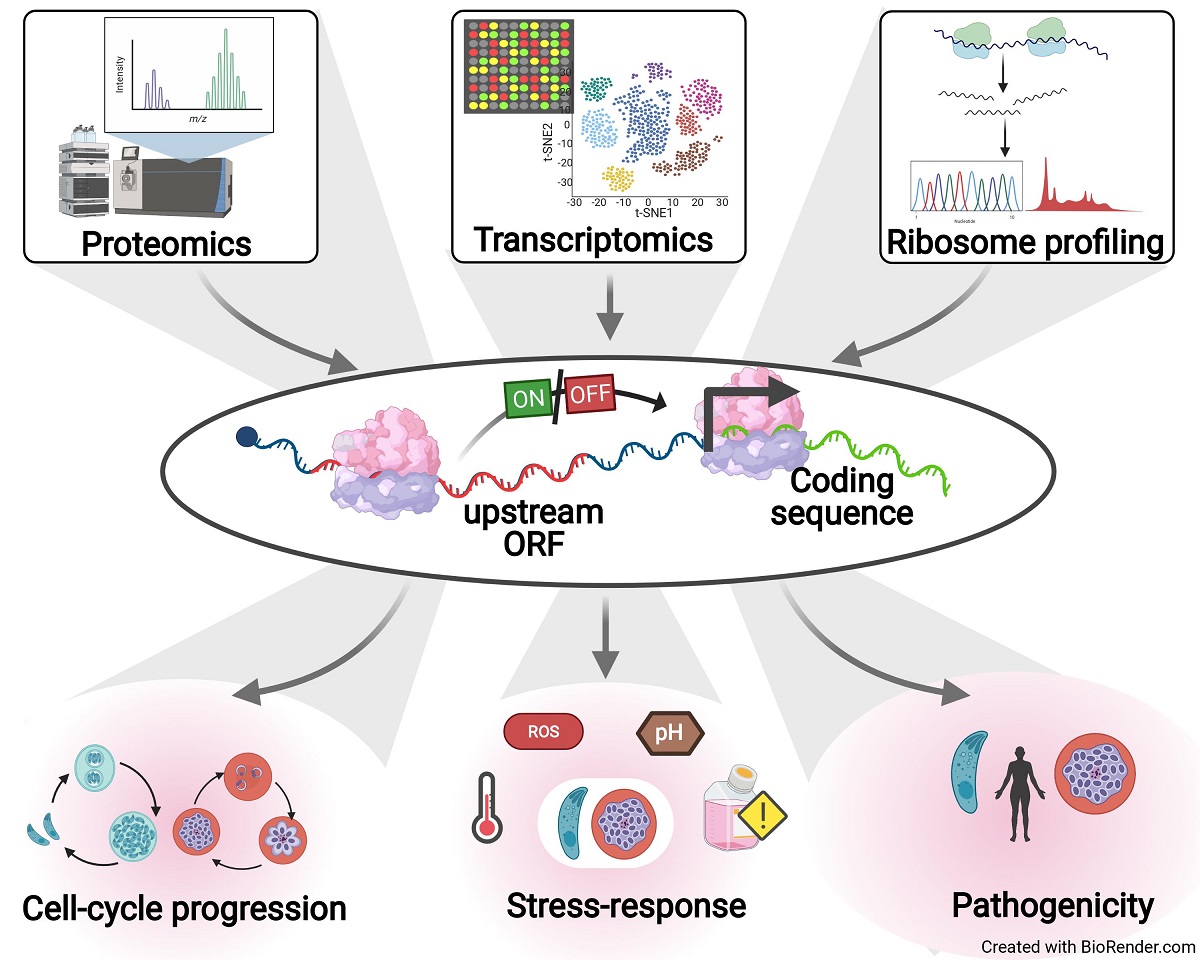During their complex life cycles, the Apicomplexan parasites, Plasmodium falciparum and Toxoplasma gondii employ several genetic switches to regulate their gene expression. One such switch is mediated at the level of translation through upstream Open Reading Frames (uORFs). As uORFs are found in the upstream regions of a majority of genes in both the parasites, it is essential that their roles in translational regulation be appreciated to a greater extent. This review provides a comprehensive summary of studies that show uORF-mediated gene regulation in these parasites and highlights examples of clinically and physiologically relevant proteins that exhibit uORF-mediated regulation. In addition to these examples, several studies that use bioinformatics, transcriptomics, proteomics, and ribosome profiling also indicate the possibility of widespread translational regulation by uORFs. Further analysis of genome-wide datasets will reveal novel genes involved in key biological pathways such as cell-cycle progression, stress-response, and pathogenicity. The cumulative evidence from studies presented in this review suggests that uORFs will play crucial roles in regulating gene expression during clinical disease caused by these important human pathogens.

